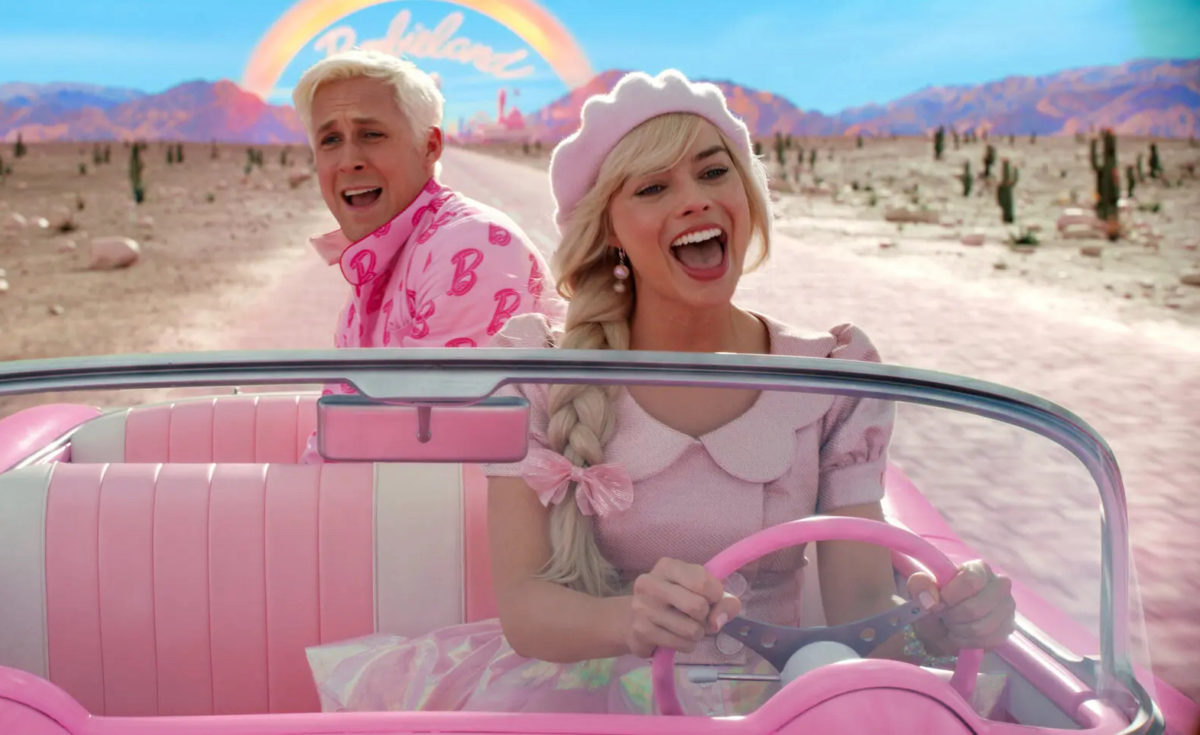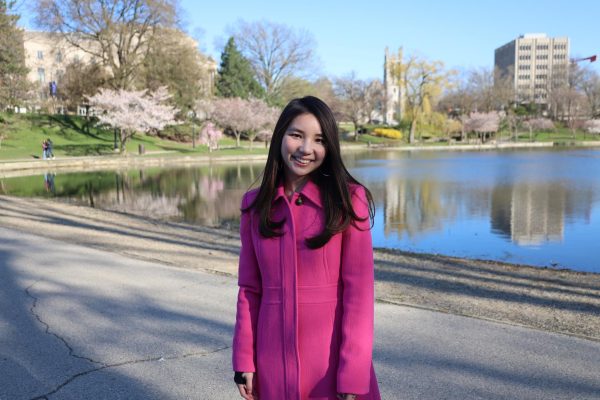Since her creation by Ruth Handler in 1959, Barbie has been celebrated as a quintessential toy for young girls and simultaneously rebuked as an object that enforces unrealistic beauty expectations and consumerism. In an engaging blend of humor and nostalgia that captures both of these convictions, “Barbie,” which premiered in July and was directed by Greta Gerwig, highlights modern-day gender inequity and the power of collective feminism.
Following the “2001: A Space Odyssey” parody opening, Barbieland appears—a pastel pink fantasy world where “thanks to Barbie, all problems of feminism have been solved.” Everyone in Barbieland is Barbie, except the men, who are just Ken—or the one-and-only Allan (Michael Cera)—and the land is run by the Barbies. There, “Stereotypical Barbie” (Margot Robbie) floats out of her dream house as if lifted by an invisible hand. In just this first glance at Barbieland, Gerwig incorporates several details that bear resemblance to the iconic toy: a wall-less dream house with a slide, a pool with no real water and exceedingly large fashion accessories.
Though she appears to be enjoying her life in a perfect pink world, it comes as a surprise when Barbie becomes haunted by feelings of sadness, anxiety and death. Even more shocking, is when her feet flatten out—a nod to how Barbie dolls usually have feet molded to fit high heels—and she develops cellulite. A visit to “Weird Barbie” (Kate McKinnon) reveals that a link exists between Barbieland and the real world, and that the reason why Barbie is feeling upset is because the girl playing with her is upset, too. Joined by Ken (Ryan Gosling), Barbie enters the real world to help the owner of her doll and restore herself to perfection. Unfortunately, once there Ken discovers the patriarchy and becomes determined to implement it back in Barbieland.
Meanwhile, Barbie meets a teenager named Sasha (Ariana Greenblatt), who promptly informs Barbie that she’s “been making women feel bad about themselves since [she was] invented,” highlighting to Barbie that, instead of saving the world, her doll created one full of female objectification. Sasha and her mother, Gloria (America Ferrera) accompany Barbie back to Barbieland, where they discover Ken’s implementation of his version of the patriarchy. To my disappointment, the movie doesn’t spend much time delving into how the matriarchy led to the Kens’ revolution. Rather, in true feminist fashion, Gloria and Sasha decide to help the Barbies regain their autonomy and self-worth in a you-go-girl type of mission that cleverly mirrors the real-world struggles of being a woman.
This sense of community was even reflected by moviegoers, many of whom intentionally wore pink to the theater to mimic the Barbies and Kens of Barbieland. Barbie has become a pop-culture phenomenon, with only some of the credit due to the popularity of the multi-generational toy. Accented with glitter, pink and all-things perceived as girly, “Barbie”’s heartfelt themes of feminism and belonging, alongside the humor of the Ken’s Patriarchy, signify much more than just the laughs we shared at the Mojo Dojo Casa Houses—Kens’ dream houses—or the men on horses running everything. “Barbie” managed to be not just funny and heartwarming, but also deeply meaningful.




